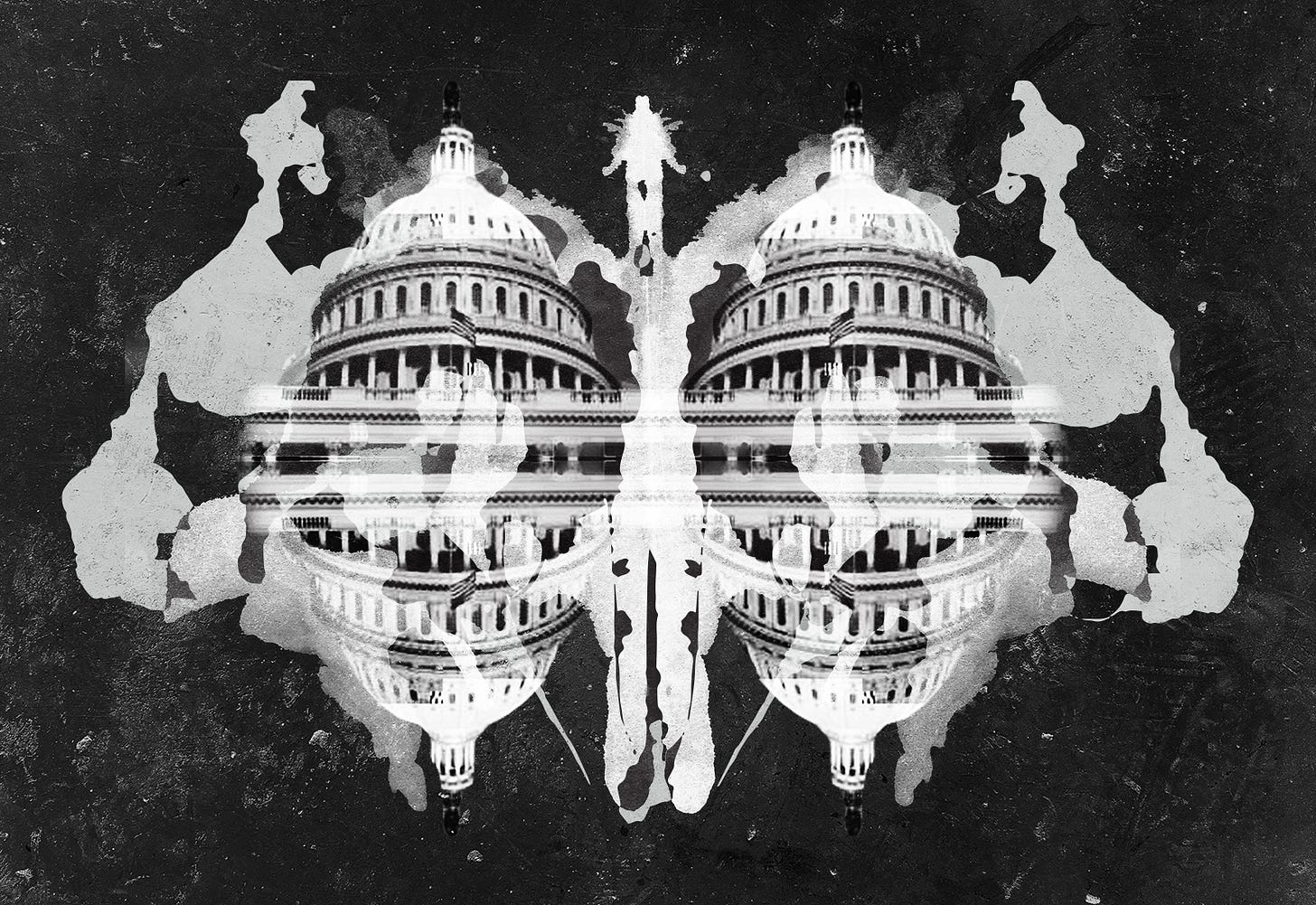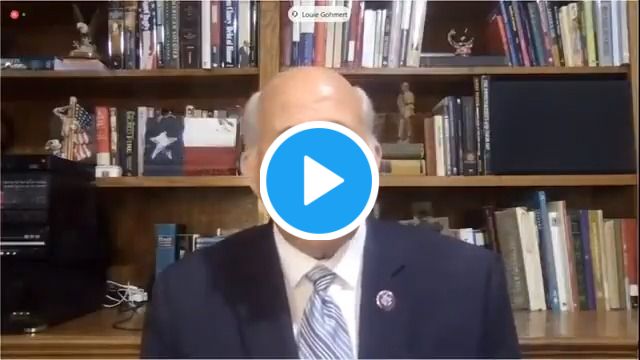Here’s the question:
What was your first reaction when you heard this story? “Biden administration to buy 500 million Pfizer coronavirus vaccine doses to donate to the world.”
The first 200 million doses will be distributed this year, with the subsequent 300 million shared in the first half of next year. The doses will be distributed by Covax, the World Health Organization-backed initiative to share doses around the globe, and they will be targeted at low- and middle-income countries. Pfizer is selling the doses to the United States at a “not-for-profit” price, according to the people familiar with the deal, who spoke on the condition of anonymity to share details that were not yet public.
Did you think:
*This is what makes America both good and great…
or
*Why should we care about the rest of world, because America First?
or
*How much does this cost? Because I’m really worried about all this spending and deficits.
or
*BigPharma is evil and greedy. We should seize the means of the production.
or
*Hundreds of millions of foreigners will be able to “put a key on their forehead. It sticks. They can put spoons and forks all over them and they can stick.”
**
So what was your reaction to the news of the vaccine giveaway?
(Email me maximum one sentence: cjaysykes@gmail.com… I’ll include responses in our weekend newsletter.)
Try this on your friends too. The results will be… revealing. And interesting, because we are all going through a period of rethinking our values; wrestling with what actually matters to us.
What is important? And what can be discarded?
Who are we really?
How the right lost its mind… via George Packer.
I’m reading Packer’s latest, a brilliant analysis of how America fractured into four countries. The whole thing is worth your time, but this is from his section on “Free America.”
Reagan cared more about the functions of self-government than his most ideological supporters. He knew how to persuade and when to compromise. But once he was gone, and the Soviet Union not long after him, Free America lost the narrative thread. Without Reagan’s smile and the Cold War’s clarity, its vision grew darker and more extreme. Its spirit became flesh in the person of Newt Gingrich, the most influential politician of the past half century. There was nothing conservative about Gingrich. He came to Congress not to work within the institution or even to change it, but to tear it down in order to seize power. With the Gingrich revolution, the term government shutdown entered the lexicon and politics became a forever war. (Gingrich himself liked to quote Mao’s definition of politics as “war without blood.”) His tactics turned the goal of limited and efficient government into the destruction of government. Without a positive vision, his party used power to hold on to power and fatten corporate allies. Corruption—financial, political, intellectual, moral—set in like dry rot in a decaying log….
Free America always had an insurgent mindset, breaking institutions down, not building them up. Irresponsibility was coded into its leadership. Rather than finding new policies to rebuild declining communities, Republicans mobilized anger and despair while offering up scapegoats. The party thought it could control these dark energies on its quest for more power, but instead they would consume it.
McGahn confirms. We knew this. But still. Via the NYT:
WASHINGTON — Donald F. McGahn II, who served as White House counsel to former President Donald J. Trump, has told lawmakers that episodes involving him in the Russia report by the special counsel, Robert S. Mueller III, were accurate — including one Mr. Trump has denied in which the president pressed him to get the Justice Department to remove Mr. Mueller.
Mike Pence, savior of democracy?
I believe that Amanda Carpenter and I had a rather lively debate over this question on the podcast last week.
But here is the Huffington Post’s S.V. Date with a surprising (and savvy) take:
MANCHESTER, N.H. — Mike Pence saved American democracy on Jan. 6, and no one wants to talk about it. Not even Mike Pence.
With his boss, then-President Donald Trump, publicly and privately leaning on him to overthrow the November election won by Democrat Joe Biden and instead award Trump a second term in the White House, Pence refused.
After the violent mob Trump had invited to Washington stormed the Capitol, chanting “Hang Mike Pence!” as they hunted for him, was cleared, the vice president returned to the dais in his role as presiding officer of the Senate, visibly angry, and finished the job….
“Literally our democracy hung in the balance,” said J. Michael Luttig, a retired federal judge whose 165-word Twitter thread Pence quoted earlier that day in explaining his decision. “This is really scary stuff.”
Yet not six months after Pence’s decision to stand firm — which averted, at the very least, a constitutional crisis, and quite possibly open warfare and bloodshed in the streets — his heroics are all but forgotten. In fact, many if not most Americans refuse to see them as such.
Quick Hits
1. Don’t Cry for H.R. 1
In today’s Bulwark, Mona Charen argues that Congress should amend the Electoral Count Act instead.
There is something Democrats can do at the federal level to respond to the threat: They can amend the Electoral Count Act of 1887. Republicans would be unlikely to filibuster this law, so Democrats can pass it with a simple majority vote. No need to tangle with Manchin and Sen. Krysten Sinema over the filibuster.
This law, blissfully ignored for most of its history with the exception of a couple of law review articles, was passed following the contentious Hayes/Tilden election in 1876—a contest that was so close it threatened to tear the country apart just 11 years after Appomattox. The law is, by many accounts, a “morass of ambiguity.” That’s too kind.
Exit take:
2. Why Is the Biden Justice Department Lawyering on Trump’s Behalf in the E. Jean Carroll Case?
Kim Wehle, in today’s Bulwark:
It’s understandably shocking and even appalling to some that taxpayer dollars are going to squashing a lawsuit regarding one of Trump’s many insulting remarks about women—particularly in connection with an alleged sexual assault. In the brief filed in the Second Circuit by Garland’s DOJ, the government admits that “Then-President Trump’s response to Ms. Carroll’s serious allegations of sexual assault included statements that questioned her credibility in terms that were crude and disrespectful.” But Garland has his eye here on the precedent this case could set—not on the merits of how Trump himself behaved.
3. My Fellow Republicans, Stop Fearing This Dangerous and Diminished Man
Former GOP Rep. Barbara Comtock in the NYT:
Humoring the guy also emboldens Mr. Trump’s pardoned allies like Steve Bannon and his former national security adviser Michael Flynn. Republicans are now flocking to Mr. Bannon’s podcast to audition for Mr. Trump’s support, and Mr. Bannon says “a litmus test” will be whether they are willing to challenge the outcome of the 2020 election. Later this month, Mr. Flynn will appear at an Oklahoma campaign rally with Jackson Lahmeyer, a political novice who is challenging Senator James Lankford, the Republican incumbent. Mr. Lahmeyer claims the 2020 election was stolen and touts Mr. Flynn’s endorsement, saying we have to be willing to “Fight Like a Flynn.”
Republicans would be better advised to fight like Senator Margaret Chase Smith. During the Joseph McCarthy era in 1950, she advised fellow Republicans that the Democrats had already provided Republicans with sufficient campaign issues, and they need not resort to McCarthy’s demagogy.
The same is true today. Republicans need to have more faith in their policies and stop being afraid of a dangerous and diminished man who has divided the country and now divides our party. Reconsider the commission, let the investigation go ahead, and run and win in 2022 on the truth.
Cheap Shots
The obvious solution: Jewish space lasers.







